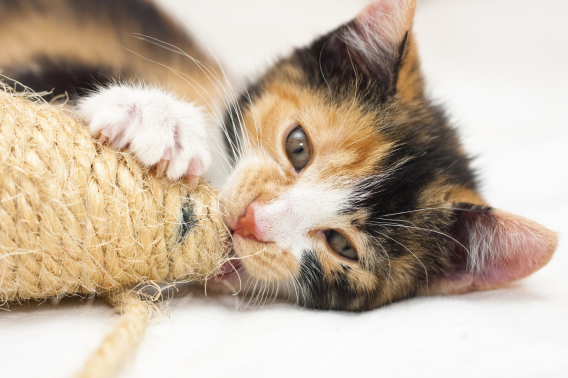
Although estate planning is an important exercise for your family, one area, which is sometimes ignored by families in St. Louis, is pet planning in the event of your death, emergency care or
disability. Pet Planning is important because pets become a part of the family in most households. As such, it is important to provide for their care in the event of unforeseen circumstances. In my
family we currently have two Labrador Retrievers (our fifth and sixth) that are an integral part of our family. That is Klondike above jumping into the Pool. In a nood to "Game of
Thrones", our new yellow Lab is named Khaleesi.
With respect to planning for emergencies and the like which could happen on a day to day basis, common sense suggestions like making sure your neighbors, friends and family know how many pets you
have and writing down all of their food and medical requirements are sometimes overlooked. Putting such information down on “electronic paper” and e-mailing them to your neighbors, friends and family
is an easy step to take to get this information out. You should also identify in writing, the identity of the person(s) to receive and be responsible for your pets either temporarily, in the event of
your incapacity, or on a permanent basis in the event of your death. Obviously you need to confirm this with such persons ahead of time. Many clients I have counseled on this choice have initially
proposed including the identity of such pet caregiver as part of their will, which is fine, but as a practical matter such persons also need to be identified outside the will since in may be days or
weeks after a person dies before the will is discovered or read.
Organizations such as the Humane Society of the United States also recommend, among other things, that you carry a wallet alert card that identifies your pets, their veterinarian and their temporary
care givers. This allows first responders and health providers to know that you have pets in the event of an accident or injury to you so that your pets can be properly cared for. Additionally, it is
recommended that an emergency notice be placed on windows and doors, similar to the placard that is put on children’s windows, notifying fire and rescue personnel that there are pets in the house or
apartment in case of fire or other emergency so that they can be rescued.
Given the fact that most pets have life expectancies which are much less the their owners’ life expectancies (with some exceptions like some birds and tortoises), most pet owners will outlive their
pets. However, many older individuals, especially widows and widowers, own pets in the later stage of their lives. Pets are wonderful companions especially for adults that have lost a husband or wife
or other significant other. In such cases that person’s pet may indeed outlive their owner. Assuming a caregiver to provide a new home for the pet has been determined, the next step that a pet owner
may want to consider is how to financially reward the caregiver for taking in their pet after their death. One method would be to make a bequest of money outright to the pet caregiver to cover future
expenses. Although this is simple in form, there are no checks and balances in place to make sure the pet is properly cared for. A second option is to create a Pet Trust, either through your will of
by use of an inter vivos (lifetime) trust. Both Missouri and Illinois statutorily allow for Pet Trusts as do a majority of the other states. In Missouri for example, a pet owner could create a Pet
Trust in a will merely by including a simple provision such as “I give $10,000 to Alan H. Smith in trust for the benefit of my dog, Klondike”. That is all that is required because the Missouri
Statute §456.4-408 RSMo fills in the rest such as when the trust ends (death of the pet) and what happens to the balance upon the death of the pet (to the successors in interest of the decedent).
Unlike an outright bequest, a bequest to a Pet Trust has checks and balances since any person mentioned in the bequest, or if none, then a person appointed by the court at the request of someone
having interest in the welfare of the pet, may enforce the trust. As I said, a Pet Trust can be very simple or it can be very complicated and detailed including things such as pet feeding,
recreation, toys etc. One very important item that a person desiring to set up a Pet Trust should include is a specific description of the pet. For example rather then refer to the pet as “My dog
Klondike” it would be better to refer to the pet as “My Chocolate Labrador named Klondike that was born on July 3, 2008". That way if Mr. Smith is still caring for a St. Bernard in 20 years named
Klondike the court will know that it is a fraud.
Please feel free to contact me if you have any questions about the formation or uses of a Pet Trust.



